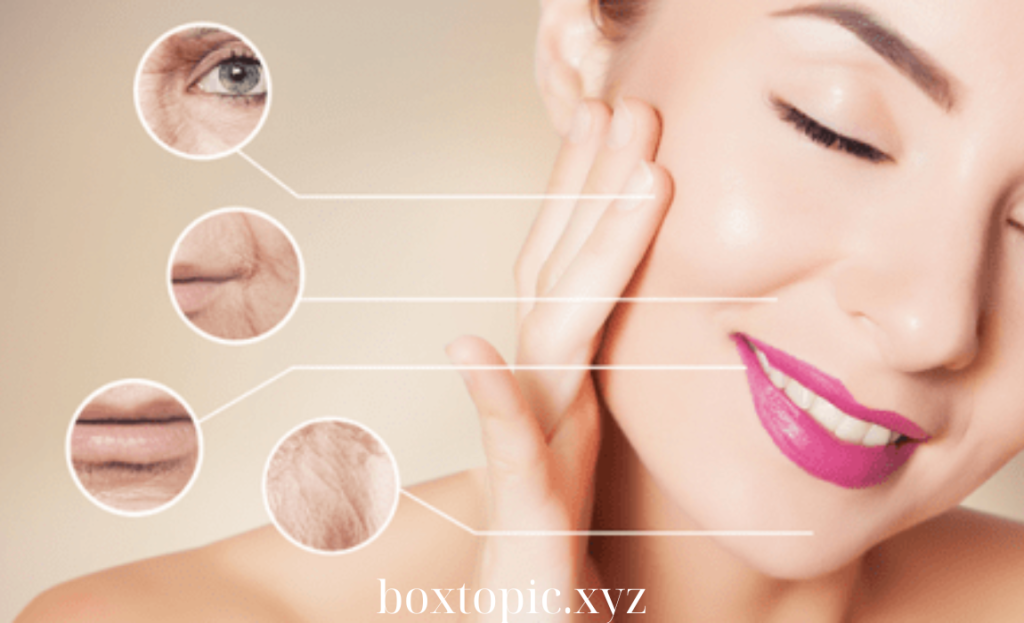Preventative Anti-Aging
Innovative Anti-Aging Prevention Strategies: Protect and Preserve Your Skin
As we age, maintaining youthful, radiant skin becomes a top priority for many. While aging is inevitable, adopting innovative anti-aging prevention strategies can help you protect and preserve your skin’s health, minimizing the appearance of wrinkles, fine lines, and other signs of aging. Advances in skincare, nutrition, and lifestyle adjustments offer new ways to slow down the aging process. Here are the most effective and innovative strategies to incorporate into your routine for long-term skin preservation.
1. Antioxidant-Rich Skincare Products
One of the most powerful ways to protect your skin from premature aging is through the use of antioxidants. These ingredients neutralize free radicals—unstable molecules that damage skin cells and accelerate the aging process.
Key Antioxidants to Look For:
- Vitamin C: Brightens skin and protects against environmental damage, such as UV rays and pollution. It also stimulates collagen production, helping maintain skin elasticity.
- Vitamin E: Protects the skin’s lipid barrier, keeping it moisturized and reducing inflammation caused by UV exposure.
- Ferulic Acid: Often combined with Vitamin C and E, ferulic acid enhances the stability and effectiveness of these antioxidants for even better skin protection.
- Niacinamide (Vitamin B3): Strengthens the skin barrier, reduces redness, and minimizes the appearance of fine lines.
How to Use: Incorporate a Vitamin C serum into your morning routine to fight daily environmental damage, followed by a moisturizer containing Vitamin E for hydration and added protection.
2. Sunscreen: The Ultimate Anti-Aging Essential
Sunscreen is one of the most critical components of any anti-aging regimen. Exposure to ultraviolet (UV) rays is one of the leading causes of premature aging, causing damage to collagen and leading to wrinkles, dark spots, and sagging skin. Daily sunscreen application, even on cloudy days, is crucial for skin preservation.
Key Tips for Sunscreen Use:
- Broad-Spectrum SPF: Use a sunscreen with broad-spectrum protection (SPF 30 or higher) to shield your skin from both UVA (aging rays) and UVB (burning rays).
- Physical Sunscreens: Opt for mineral-based sunscreens with zinc oxide or titanium dioxide if you have sensitive skin. These physical sunscreens sit on top of the skin and reflect harmful rays.
- Reapply: Reapply sunscreen every two hours, especially if you’re outdoors, sweating, or swimming.
How to Use: Apply sunscreen after your morning skincare routine and before makeup. Opt for multitasking moisturizers or foundations that include SPF for added convenience.
3. Retinoids: Stimulate Collagen and Cell Renewal
Retinoids are a well-researched and effective group of compounds known for their anti-aging benefits. Derived from Vitamin A, retinoids stimulate cell turnover, boost collagen production, and improve skin texture, reducing the appearance of fine lines, wrinkles, and age spots.
Types of Retinoids:
- Retinol: A milder form available in over-the-counter skincare products. Ideal for those starting with anti-aging treatments.
- Tretinoin: A prescription-strength retinoid that offers more potent results, often used for treating deeper wrinkles and sun damage.
- Bakuchiol: A plant-based alternative to retinol, offering similar anti-aging benefits without the irritation that retinoids can cause in sensitive skin.
How to Use: Start with a low concentration of retinol (0.25% or 0.5%) and apply it 2-3 times per week in the evening. Gradually increase usage as your skin builds tolerance, always following with a hydrating moisturizer to prevent dryness.
4. Innovative Skin Devices and Treatments
The latest skin devices and treatments can significantly enhance your anti-aging routine by stimulating collagen production and promoting skin rejuvenation. These non-invasive devices and therapies offer innovative ways to keep your skin youthful and firm.
Key Devices and Treatments:
- LED Light Therapy: Red LED light stimulates collagen production and reduces inflammation, making it an excellent treatment for wrinkles and sagging skin.
- Microneedling: This procedure uses tiny needles to create micro-injuries in the skin, triggering the body’s natural healing process and increasing collagen and elastin production.
- Laser Resurfacing: Laser treatments target the deeper layers of skin to reduce wrinkles, scars, and hyperpigmentation, promoting smoother, more even skin.
- At-Home Microcurrent Devices: These devices deliver low-level electrical currents to the skin, toning facial muscles and promoting collagen synthesis for firmer, lifted skin.
How to Use: Incorporate LED light therapy devices at home for 10-15 minutes a few times a week or book professional microneedling or laser treatments for more intensive results.
5. Hydration: The Foundation of Youthful Skin
Proper hydration is essential for maintaining plump, youthful-looking skin. Dehydrated skin appears dull and accentuates fine lines, making it more susceptible to aging. Incorporating hydrating products and maintaining your skin’s moisture barrier is a fundamental anti-aging strategy.
Key Hydration Tips:
- Hyaluronic Acid: A popular humectant, hyaluronic acid attracts and retains moisture in the skin, making it plumper and reducing the appearance of fine lines.
- Ceramides: Strengthen the skin’s natural moisture barrier, preventing water loss and keeping the skin soft and supple.
- Drink Water: Stay hydrated from within by drinking enough water throughout the day. Dehydration can contribute to sagging skin and a lack of elasticity.
How to Use: Apply a hyaluronic acid serum immediately after cleansing, followed by a moisturizer containing ceramides to lock in hydration. Ensure you’re drinking 8-10 glasses of water daily to support skin health.
6. Anti-Inflammatory Diet for Skin Health
What you eat has a direct impact on the health and appearance of your skin. An anti-inflammatory diet rich in nutrients helps to combat oxidative stress, prevent collagen breakdown, and support the skin’s repair process.
Key Foods for Anti-Aging:
- Omega-3 Fatty Acids: Found in fatty fish like salmon and walnuts, omega-3s help keep the skin moisturized and reduce inflammation.
- Antioxidant-Rich Foods: Include berries, leafy greens, nuts, and seeds, all of which are packed with antioxidants that fight free radical damage.
- Collagen-Boosting Foods: Bone broth, citrus fruits, and leafy greens contain collagen-building nutrients like vitamin C and amino acids.
- Polyphenols: Found in foods like green tea, dark chocolate, and grapes, polyphenols help protect the skin from environmental stress and UV damage.
How to Use: Create a balanced diet rich in vegetables, fruits, whole grains, and lean proteins. Consider adding collagen supplements to your routine for additional support in skin elasticity and hydration.
7. Incorporate Peptides into Your Routine
Peptides are short chains of amino acids that are the building blocks of proteins like collagen and elastin. Peptide-infused skincare products help to stimulate collagen production, improve skin firmness, and reduce the appearance of wrinkles.
Types of Peptides:
- Signal Peptides: Trigger the production of collagen, elastin, and other proteins, improving skin texture and reducing fine lines.
- Carrier Peptides: Deliver trace elements like copper and magnesium to the skin, promoting wound healing and skin repair.
- Neuropeptides: Inhibit the signals that cause facial muscles to contract, providing a botox-like effect and smoothing expression lines.
How to Use: Look for serums or creams containing peptides and apply them in the morning or evening after cleansing. Peptides are safe for daily use and can be combined with other active ingredients like hyaluronic acid and antioxidants.
8. Manage Stress for Better Skin
Chronic stress can take a toll on your skin by increasing the production of cortisol, a hormone that breaks down collagen and accelerates the aging process. Managing stress through lifestyle changes is an important part of preserving youthful skin.
Stress-Reduction Strategies:
- Mindfulness and Meditation: Regular meditation or mindfulness practices help lower stress levels, reducing cortisol production and improving skin health.
- Adequate Sleep: Aim for 7-9 hours of quality sleep each night to allow your skin to repair and regenerate. Lack of sleep can contribute to the formation of wrinkles and dull skin.
- Exercise: Regular physical activity boosts circulation and promotes the delivery of nutrients to the skin, improving overall tone and texture.
How to Use: Incorporate daily stress-management techniques such as yoga, meditation, or a relaxing evening skincare ritual to improve both your mental well-being and skin health.
9. Regular Exfoliation for Skin Renewal
Exfoliation is crucial for removing dead skin cells and promoting the growth of new, healthy skin. Regular exfoliation can improve skin texture, even out tone, and help prevent the buildup of damaged cells that contribute to aging.
Types of Exfoliation:
- Chemical Exfoliants: Alpha-hydroxy acids (AHAs) and beta-hydroxy acids (BHAs) gently dissolve dead skin cells, revealing fresher, smoother skin. AHAs like glycolic acid also stimulate collagen production.
- Physical Exfoliants: Scrubs and brushes physically slough off dead skin cells but should be used gently to avoid irritation.
- Enzyme Exfoliants: Derived from fruits like papaya and pineapple, enzymes provide a gentle exfoliation suitable for sensitive skin.
How to Use: Incorporate a chemical exfoliant (such as a glycolic acid serum or peel) into your routine 1-2 times per week to enhance skin renewal. Avoid over-exfoliating, which can damage the skin barrier and lead to dryness.
Conclusion
Innovative anti-aging prevention strategies combine cutting-edge skincare, lifestyle adjustments, and nutrition to protect and preserve your skin’s youthful appearance. By incorporating antioxidants, sunscreen, retinoids, and skin devices into your routine—along with stress management and proper hydration—you can keep your skin healthy, radiant, and resilient against the signs of aging. Regularly updating your approach and staying informed on the latest advancements will help you maintain your skin’s vitality for years to come.

